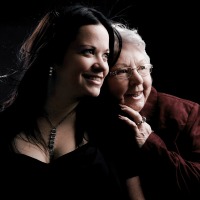Family Trumps Friends for Longevity

Recent studies show that older adults will live longer, if they are involved in an active family social setting. Social settings provide an opportunity for people to meet and greet their family and friends. Although friends are an important part of a person’s life, it is the family structure that holds the key to life and death, according to lead author, James Iveniuk. Older people who have a connection with their family, and those who are close to their family members, are less likely to experience an early death. A study conducted on Social Relationships and Mortality in Older Adulthood, looked at corresponding data from 2005 through 2006, and from 2010 through 2011. The data showed the mortality wave of respondents from ages 57 through 85, and how the wave mortality was assessed.
Results of Reports Reveal Emotional Ties of Older Adults
In one such study, older individuals were asked to make a list of at least five people they felt close to, and describe the nature of their relationship, and express how they felt about each person. Spouses were excluded from the list. It seems that the majority of older people in the study only listed about 2 to 3 people, which they felt provided them with the type of social support they needed. However, most of the older adults were married, in reasonably good health, and indicated they were not lonely. Co- author, L. Philip Schumm, found that those older adults who expressed feeling closer to their non-spousal members of their family have a 6% chance of experiencing death within the next five years. Individuals who reported feeling distant from family members have a 14% chance of mortality.
Closeness in Social Network Setting May Have Longevity Benefits
The study also showed that older individuals with any type of social closeness connection with anyone might be a key ingredient to living longer. Iveniuk stated he was surprised to learn that older people with feelings of closeness to their family members had a lower risk of dying than those individuals who listed fewer family members. However, these feelings are not the same for people who feel closer to their friends.
What Does This Information Really Mean?
It would seem that choosing one’s own network of friends, based on specific needs, would provide greater benefits. However, this speculation does not support the data. It is a fact that one cannot choose the characteristics or behaviors of a friend, just as one cannot choose which type of family one is born into. In most circles, people have little choice about the type of people that choose to connect with them in a social setting.
In comparison, there were four obvious characteristics of social networking associated with mortality, when comparing close family ties and friendships.
- Marriage
- Network size
- Social interaction
- Emotional Ties
All four of these characteristics matter to people to some degree. The two least important factors people expressed were feeling lonely and having access to social networking groups or participation. Marriage seems to have a positive effect on longevity, regardless of the aspects of the marriage.
Family Ties Can Increase Longevity
Surprisingly, the bond two people share in their marriage creates a lasting bond of closeness that seems to provide emotional and social support. The conclusion of the study indicates that older people with some type of close family tie can increase their chance of living longer. While friendships are important, they cannot replace the bond that families have obtained through marriage and especially through their bloodline. People choose to stay close to people who support them somewhat.